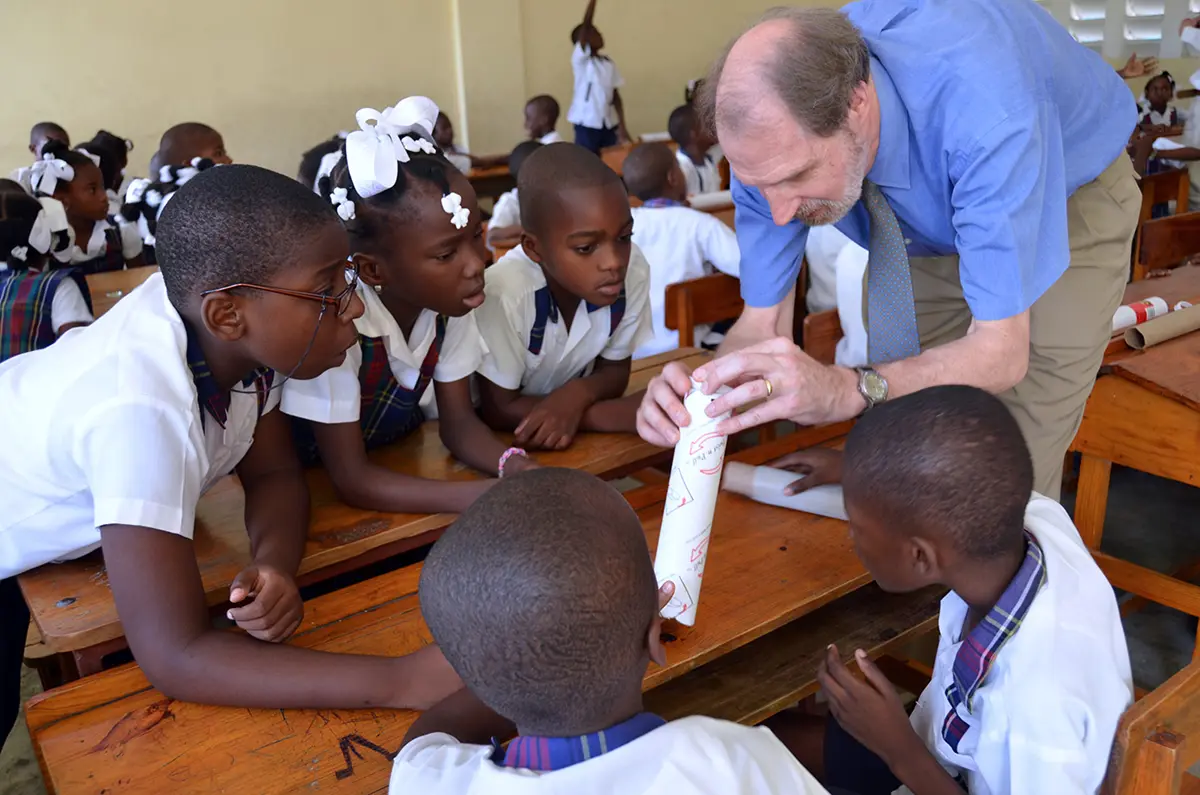
Professor Robert Giles teaches schoolchildren in Les Cayes, Haiti, how to build a simple telescope out of cardboard tubes and lenses as part of the Honors Development Studies Center’s astronomy education outreach.
About the Honors Development Studies Center (HDSC)
The Honors Development Studies Center (HDSC) at the University of Massachusetts Lowell is an interdisciplinary, globally engaged initiative committed to fostering student learning through hands-on, community-based research that addresses the challenges of development in under-resourced regions. Aligned with UMass Lowell’s mission to provide a transformational education that cultivates global awareness, HDSC connects students and faculty with communities abroad to promote sustainable development through science, technology, and cultural collaboration.
HDSC has expanded its reach beyond the Caribbean and now includes partnerships in Ghana and other African countries, where faculty-led research and student engagement programs focus on strengthening regional self-reliance through cooperative, continental solutions. In Ghana, UMass Lowell students collaborate with local universities, NGOs, and government agencies to examine pressing issues such as energy access, water quality, food security and the cultural dimensions of development. These experiences challenge students to think critically and ethically about the global dynamics of poverty and sustainability, while fostering mutual learning with their African counterparts.
In Haiti, HDSC builds on more than a decade of faculty experience and deep community partnerships. Recognizing that sustainable change must emerge from within, for many years UMass Lowell had a permanent base of operations in the city of Les Cayes, in Haiti’s Southern Department. This residence enabled continuous health and environmental assessments, long-term project implementation and immersive student engagement.
Fostering relationships both in Ghana and Haiti, the HDSC model emphasizes respect for local knowledge, collaborative inquiry, and student-driven research. Faculty and interns engage in extended fieldwork, guided by regional advisors and in coordination with local communities. Together, these efforts provide meaningful opportunities for students to apply classroom learning to real-world problems—while building relationships that bridge continents and create lasting global impact.
